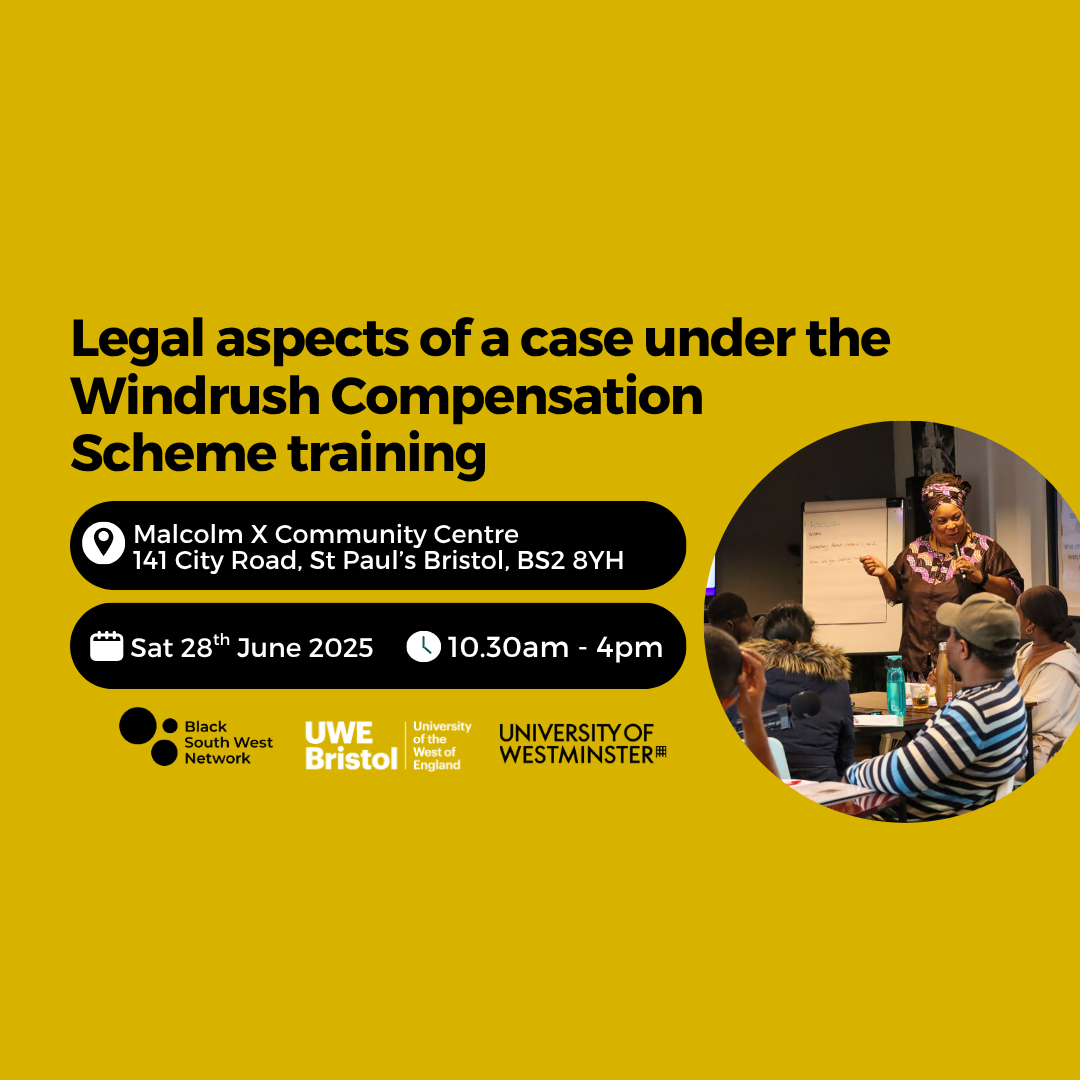As we move into the latter half of 2025, Windrush Day has taken on a particularly poignant resonance in the southwest of England. In May, renowned Birmingham artist Barbara Walker exhibited her powerful collection of sketches and paintings at the Arnolfini in Bristol, capturing the lives of Black British and Caribbean people.
Her series Burden of Proof stood out, overlaying portraits of affected individuals onto documents that affirm their right to reside in the UK. In doing so, Walker calls out the British government’s hostility toward those wrongfully labelled as “undocumented.”
The variety of documentation (medical notes, landing cards, character references, military discharge papers) exposes the unjust burden placed on people once welcomed by the very government that now treats them as unwelcome.
Sadly, not much has changed. In 2025, the Black South West Network found there was still no formal advocacy organisation in Bristol for the Windrush Compensation Scheme. Instead, a handful of individual advocates work in isolation, often under-supported and navigating the trauma-laden complexities of immigration law.
The Windrush Compensation Scheme, meant to provide redress to those harmed by the scandal, has continued to fall short. As Human Rights Watch stated in 2023, the government “continues to fail these people by denying claimants their right to redress for the life-altering losses and negative effects it has had on their lives for years.”
Wendy Williams, author of the Windrush Lessons Learned Review, noted an “institutional ignorance and thoughtlessness towards the issue of race”—an assessment the Home Office has since admitted, particularly in its disproportionate impact on Black and racially minoritised claimants.
The Home Office’s imbalance of power has deterred many rightful claimants from coming forward, fearing bias and retraumatisation. The process is widely described as stressful and overwhelming. The primary application form alone is 44 pages long – allegedly designed so that applicants wouldn’t need legal assistance. In practice, this is far from reality.
While some individual advocates exist to support claimants, the need for legal expertise is clear. Even these advocates often find themselves struggling through the complexities and require professional guidance to assist effectively and in a trauma-informed way. Compounding this, many eligible individuals aren’t even aware they qualify. The Scheme applies not only to those from the so-called ‘Windrush Generation,’ but also to migrants from across the Commonwealth and their descendants.
To address these gaps, Black South West Network has begun supporting individual advocates committed to justice for affected communities. Partnering with Rachel Wood and Tamara Rundle at the UWE Law Clinic, the Southwark Law Centre, and the University of Westminster, we held our first Windrush Compensation Scheme workshop on the 10th of May 2025.
Sixteen advocates attended, receiving training on the roles and responsibilities of being a WCS community advocate for Commonwealth migrants. Rachel Wood is also engaging with local law firms to explore pro bono support and funding, aiming to build a sustainable legal infrastructure for the southwest.
Here’s what Tamara Rundle has to say about the Scheme and our training:
“Speaking for Rachel Wood and myself, we are so pleased that UWE ‘University of the West of England’ has project funding for support and training. With that we are already working with trusted partners, including BSWN, who are preparing Community Advocates to facilitate applications. Rachel was in Westminster this week for a Windrush event and we were both impressed with those that attended Malcolm X when we ran the first training. Work has begun, everyone’s efforts and this article are all much appreciated.”
If you missed the last session, don’t worry – more are on the way. On the 28th of June, we’ll host a session focused on the legal aspects of the Scheme, followed by a celebratory event on 25 July to honour our newest cohort of WCS community advocates. Come along – and let’s continue breaking down barriers to justice.
To finish, we want to share a poem excerpt written by Peter Green, Trustee of Dorset Race Equality Council, based on the Windrush experience:
Yes, I am ‘homeward bound’,
found by a new catcher, legal,
approved and regal,
no less than her Majesty’s
government denying any travesty
of justice, dignity and human right.
Moral right subservient to might.
I am an alien, I am told
and in the atmosphere and hold
of a hostile environment.
I am a target, rather was a target
of a political Home Office market.
A non-existent target denied,
referred to as a demographic
to become lawful human traffic
and fulfil a party politic agenda.
Sources
https://www.hrw.org/news/2023/04/17/uk-hostile-compensation-scheme-fails-windrush-victims

